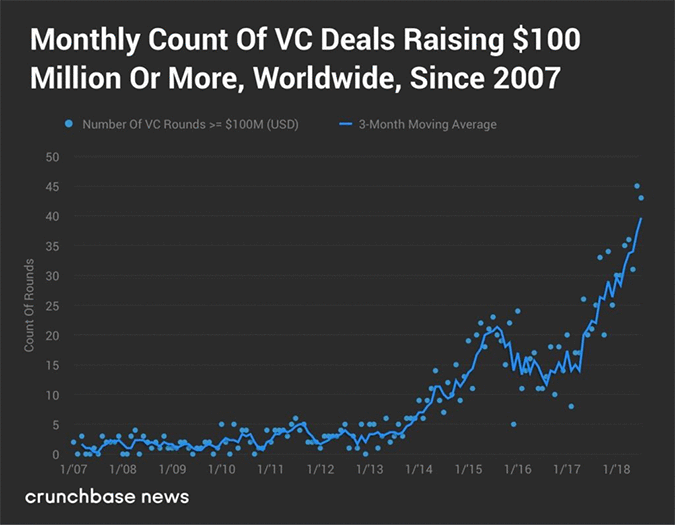CKBlog: Strategies
Thursday, August 02, 2018
Why Did This Deal Reach Me?
by Steve Haberstroh, Partner
Part of our role for clients is to evaluate the private deals that come across our desks. Sometimes these reach us through a cold call or email, but they also arrive via our own network and in many cases, from our own clients. It takes an extremely high bar for these investments to make it into client portfolios, but our process always starts with the following questions:
“If this deal is so good, why did it reach me?”
“Why hasn’t someone else snapped it up prior to it reaching us?”
Skepticism when evaluating investments, whether public or private, is our most useful tool.
Over the last several years, we’ve come across the following private “investment opportunities”:
- Cell Phone Towers in Africa
- Commercial Real Estate in Charleston, SC
- Spec Homes in the Hamptons
- Hotel Projects in the southeastern part of the US
- Barging Operation in South America
- Resort in Cuba (really!)
- Student Housing
- Resort in the Dominican Republic
- Telecommunications Company in Paraguay
- Early Stage Website attempting to Disrupt the Real Estate Broker Model
- The Debt of a Yacht Club Development
- Oil Fields in Oklahoma
And many more ...
We declined the vast majority of these, many of which only took minutes to make that decision. But when a particular opportunity peaks enough of our interest, we dig in. To get comfortable with private deals it takes extensive due diligence, number crunching, verification, interviews, testimonials, as well as discussions with industry experts, accounting firms, and trusted advisors. We’ve even rolled up our sleeves and visited sites to make sure what we were reading was accurate. It takes more.
Unlike publicly traded securities, these private investments typically:
- Are Illiquid
- Have a long runway until a particular outcome
- May not be regulated
- Have success or failure heavily dependent on a single person or very small team
- Are lacking publicly available information
You can understand why we set the bar extremely high.
One of the hurdles we face when evaluating these projects is the record amount of money that is currently flowing to private equity investments pushing up prices. Commonly heard on “the street” is something like:
“I’m not earning much on cash. Yields on bonds are still low and the prices of bonds should go down as rates go up. Stocks have had an incredible run. Hedge Funds charge too much (and performance has been mediocre) so ... maybe we should look at this resort in Belize? It has a projected IRR of 20%!”
When more and more money chases a particular asset class promising outstanding returns, one’s skepticism should be at an all-time high. According Prequin, a research firm covering the private equity industry, PE firms are sitting on $1 Trillion worth of cash looking for investments. Below is a graph depicting the trajectory of this rise in AUM and cash levels among PE firms:

Large PE firms aren’t the only ones raising records amount of cash. Venture Capital firms have been getting into the act. Crunchbase, a research firm covering start-ups and the VC industry, recently published the following chart. Look at the trajectory in growth of $100 million VC funds raising funds.

And this doesn’t even count the corporate cash hoards.
At the end of 2017, companies like Apple, Alphabet (Google), and Berkshire Hathaway were sitting on $285 billion, $102 billion, and $116 billion of cash, respectively. Apple’s latest acquisitions include Shazam and Beats Electronics. Alphabet is a serial acquirer, having made 214 acquisitions since its founding—more than Apple and Amazon combined. As for Berkshire, making acquisitions is what drives Mr. Buffett to work every day. And we know how he feels about his cash hoard. From his latest letter to Berkshire Shareholders:
“Despite our recent drought of acquisitions, Charlie (Munger) and I believe that from time to time Berkshire will have opportunities to make very large purchases. In the meantime, we will stick with our simple guideline: The less the prudence with which others conduct their affairs, the greater the prudence with which we must conduct our own.”
Our clients clearly do not have the cash hoard of large corporations or PE firms so we generally aren’t competing for large corporate acquisitions like the Blackstones or KKRs of the world. But we CastleKeepers aren’t foolish enough to think that when a deal crosses our desk, we are the first to see it.
Which is why we constantly ask “If this is such a good deal, why has it reached my desk?” We’d rather be called skeptics than spendthrifts. It’s how many of our clients have become wealthy prior to coming to CastleKeep. And we’d like to keep it that way.




